Perhaps it’s the sheer amount of work that Ryu Ga Gotoku Studio did in adapting the Yakuza formula into a turn-based RPG. Perhaps it’s the level of care that went into Yakuza: Like A Dragon‘s beautiful recreation of Yokohama. Perhaps it’s the way the game takes the requisite ridiculous Yakuza minigames and cranks every single one of them up to 11.
All of these are reasons why Yakuza: Like A Dragon is so special, sure. But for me, right now, at this point in history, the thing that the game leaves me with is the drive to be better for myself and do better by my friends.
After all, that’s what a hero does.
Yakuza: Like A Dragon Review — A Real Hero
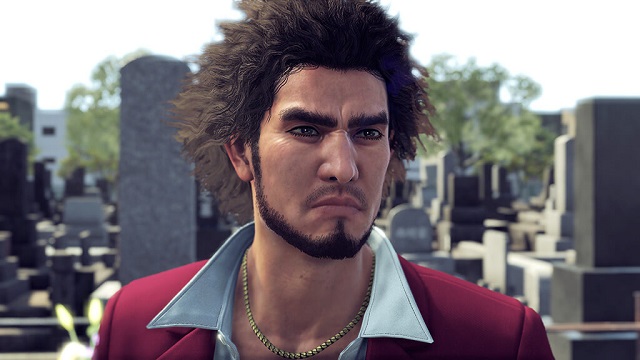
Yakuza: Like A Dragon has one of my favorite turn-based battle systems in any video game ever.
For Yakuza fans wondering if Yakuza: Like A Dragon is a worthy entry in the series, there are likely two big questions that need answering.
The first is whether longtime series protagonist and hot-dad icon Kazuma Kiryu fading into the background affects the series’ charm. I won’t bury the lede here. Though Ryu Ga Gotoku Studio’s first post-Kazuma Kiryu Yakuza lead, Ichiban Kasuga, had some pretty huge wingtips to fill, Kasuga not only does the job admirably but is already my favorite protagonist in series history.
The second question is whether the shift to turn-based combat causes battles to lack the series’ signature impact. This is a trickier question, but only because it really is just a matter of taste.
If you hate turn-based combat, you probably won’t like this. But if you like it, or even tolerate it, you should know that Yakuza: Like A Dragon has one of my favorite turn-based battle systems in any video game ever, with heavy Paper Mario: The Thousand-Year Door vibes.
If you’re a Yakuza fan, that’s probably enough for you. Heck, if you’re not, it might be enough for you anyway. But my editor is in my ear and telling me that I should probably go into specifics, so here we go.
Ichiban means Number One!
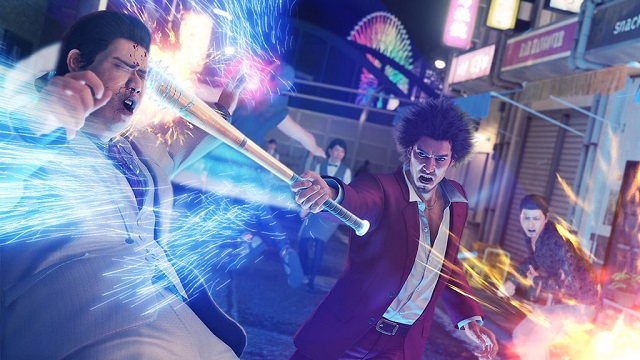
There’s a lot to love about new protagonist Ichiban Kasuga, from his refreshingly expressive demeanor to his goofy hair and suit, but his hero complex takes the cake.
Kasuga is an uber-fan of the Dragon Quest series of games. This, in a genius stroke of narrative design, justifying the switch to turn-based combat (the explanation is that Kasuga just kind of sees his whole life through the lens of an RPG). And this instills in him a drive to be a hero in real life too, somebody who doesn’t just help others, but someone who is dedicated to tough, incremental self-improvement to be the best person they can be.
It’s touchingly hopeful and leads to some particularly affecting moments in the game’s story. It also helps that the English dub of the game is amazing. The entire English voice team does great work, but Kasuga’s voice actor Kaiji Tang deserves special mention.
For the sake of limiting spoilers, I don’t want to go into too much detail on the party members Kasuga will meet along his journey, but suffice it to say that they’re all the kind of deep, relatable, and lovable characters the series is known for.
The plus side is that because now they’re party members, you get to learn a whole lot more about them. The only caveat here is that the game still can’t help but make female party members (and other NPCs) the target of leering, creepy jokes. It’s a shame, especially because the story, most of the time, does right by its women in ways other games in the franchise do not.
Also new to the series is a new map to explore, the seaside town of Yokohama. And folks, Yokohama is impressive. Not only is it legitimately gigantic, but the developers put the same amount of care into each building in Yokohama as they do to buildings in Kamurocho. Each building, each signpost, each tiny bar has an identity, even if you can’t actually interact with it. It’s beautiful, and the fact that the huge parks have the same attention to detail as the tiny alleyways makes Yokohama a joy to explore.
And speaking of exploring, there’s plenty of that to do in Yakuza: Like A Dragon. This game has by far my favorite minigames in any title in the franchise, both for their ridiculousness (you’ll battle sheep to stay awake through classic movies in a slightly-too-comfy theater before taking a quiz on the history of SEGA) and for their sheer scale.
Along with series mainstays like batting cages, mahjong, karaoke, and a variety of gambling games, Yakuza: Like A Dragon has a company management sim, a game that can be best described as “it’s Pac-Man except you’re on a bike,” and a Mario Kart clone that is, bar none, my favorite minigame the series has ever introduced.
Leveling Up
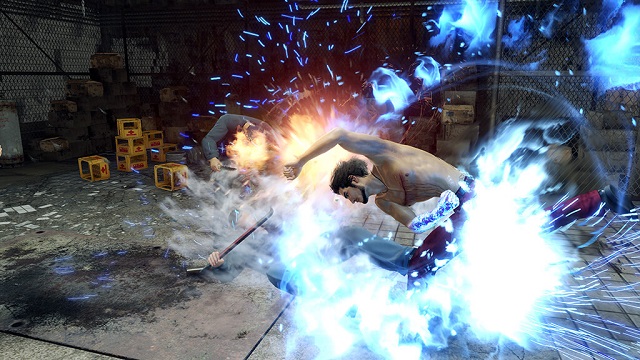
Yakuza: Like A Dragon is an uplifting and hopeful story told with heart, supported by satisfying RPG gameplay.
I didn’t think the series’ transition into a full-fledged RPG would be either as seamless or as complete as it is. There’s an incredible amount of care here. The developers didn’t just fit the game into an RPG template, they built something original.
Battles load quickly, and despite the turn-based combat, it doesn’t take any longer to dispatch goons than it does in previous titles, which is a plus. Even more stunning is the way combat plays out environmentally.
Your party and your opponents circle each other, and depending on where you (and them!) are, you can, in true Kazuma Kiryu fashion, kick a scooter at someone or bash their head in with a traffic cone. The addition of action commands on both attack skills and defensive skills really pulls everything together into a wonderfully dynamic package.
The game’s highly-touted job system is also one of the deeper mechanics I’ve seen in an RPG. There are well over a dozen jobs available to party members, and each one has a specific set of equipable weapons, a distinct battle costume, and a huge, varied list of flashy skills.
Mixing and matching party jobs gives players the ability to approach battles in an incredibly creative way. If you, like me, have been craving a Yakuza 0-esque shakeup to series combat, you’ll be extremely satisfied.
Yakuza: Like A Dragon Review — The Bottom Line
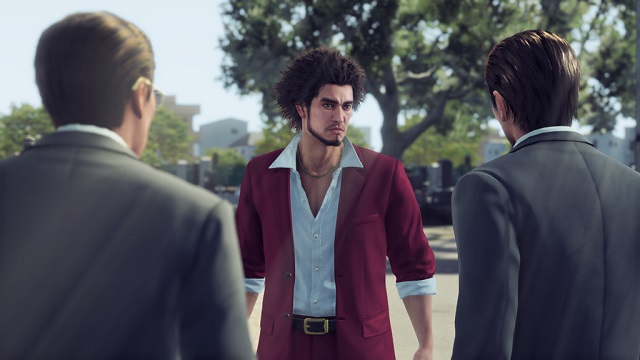
Pros
- Ichiban Kasuga is the best character in the Yakuza franchise since (or maybe even including) Kazuma Kiryu
- The new turn-based combat system is impeccable
- Yokohama is a beautiful joy to explore
- The job system allows for a ton of creative strategizing
- The English dub is great
- Dragon Kart deserves its own spinoff game
Cons
- It takes a noticeably annoying length of time to load into minigames and dungeons (at least on Xbox One), taking you out of the action
- Slightly creepy treatment of the game’s women
Yakuza: Like A Dragon is an uplifting and hopeful story told with heart, supported by satisfying RPG gameplay and a host of entertaining side-missions and minigames. It is a story about a well-meaning goofball trying his best against impossible odds in an uncaring, cruel world. It is a story told well both through exposition and through gameplay that supports that thesis.
If this is your first foray into the Yakuza series, Yakuza: Like A Dragon provides an ideal starting point. If you’re a long-time fan of the Yakuza franchise, you’re about to find your new favorite entry.
[Note: Sega provided the copy of Yakuza: Like a Dragon used for this review.]

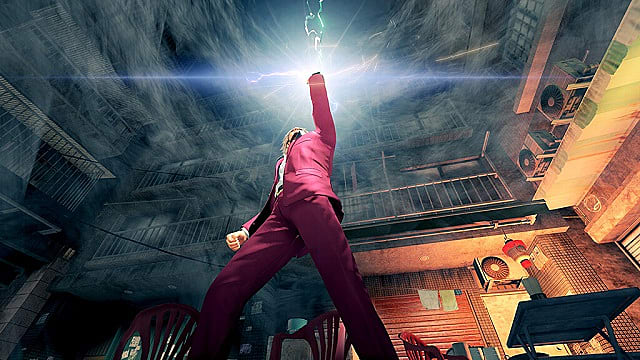





Published: Nov 4, 2020 12:36 am